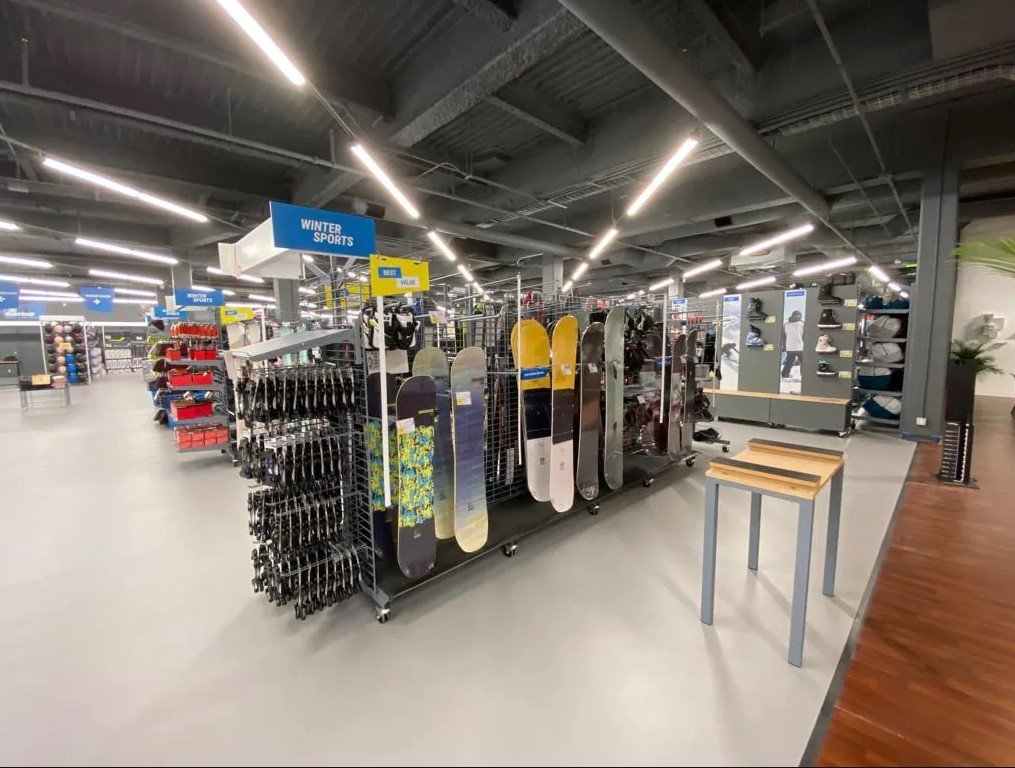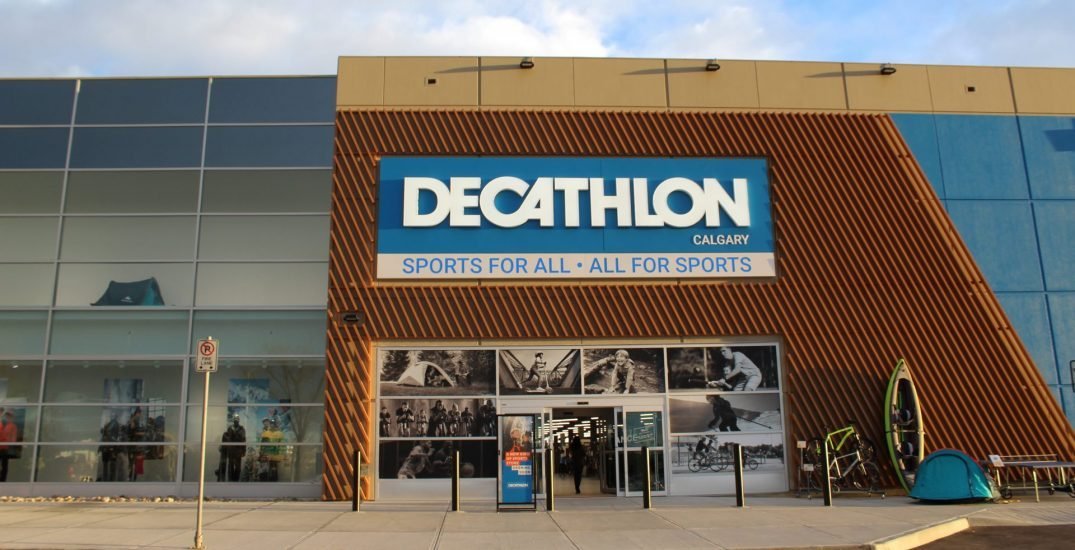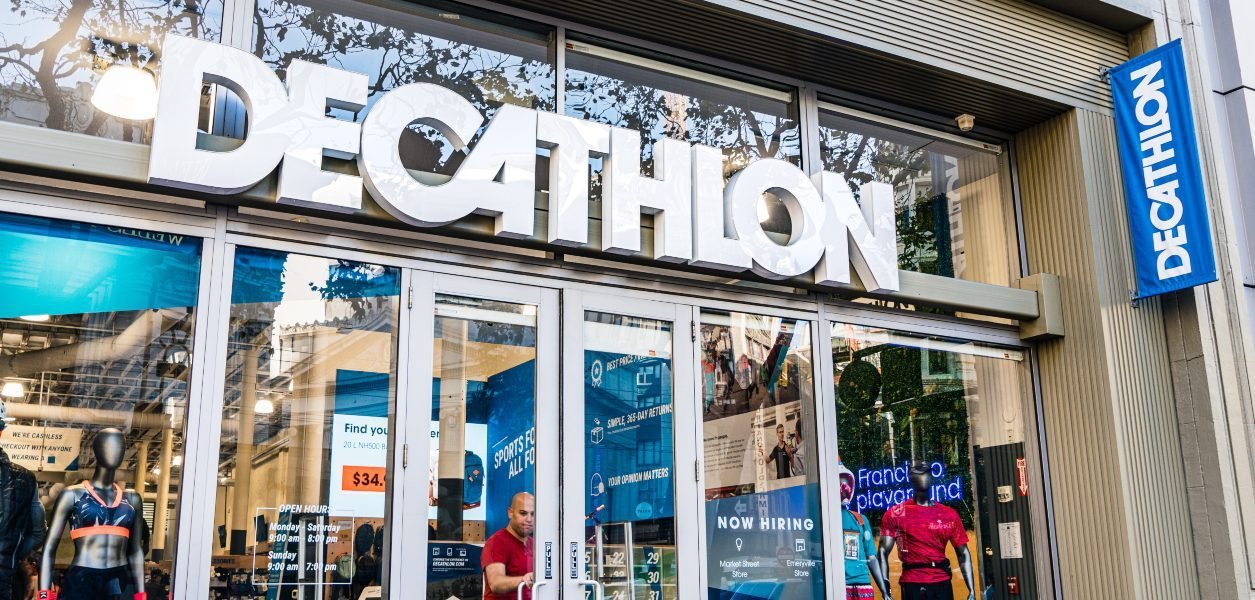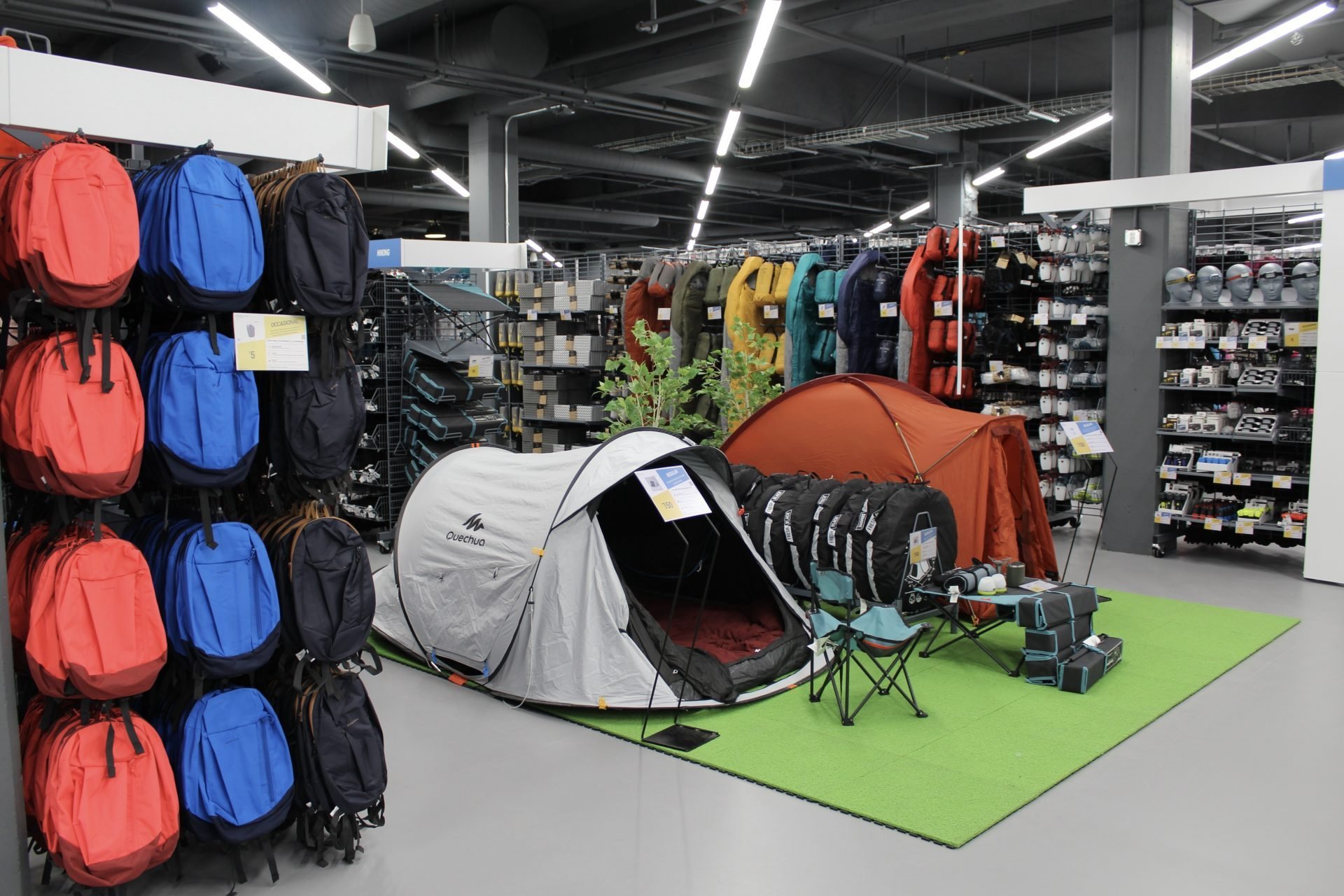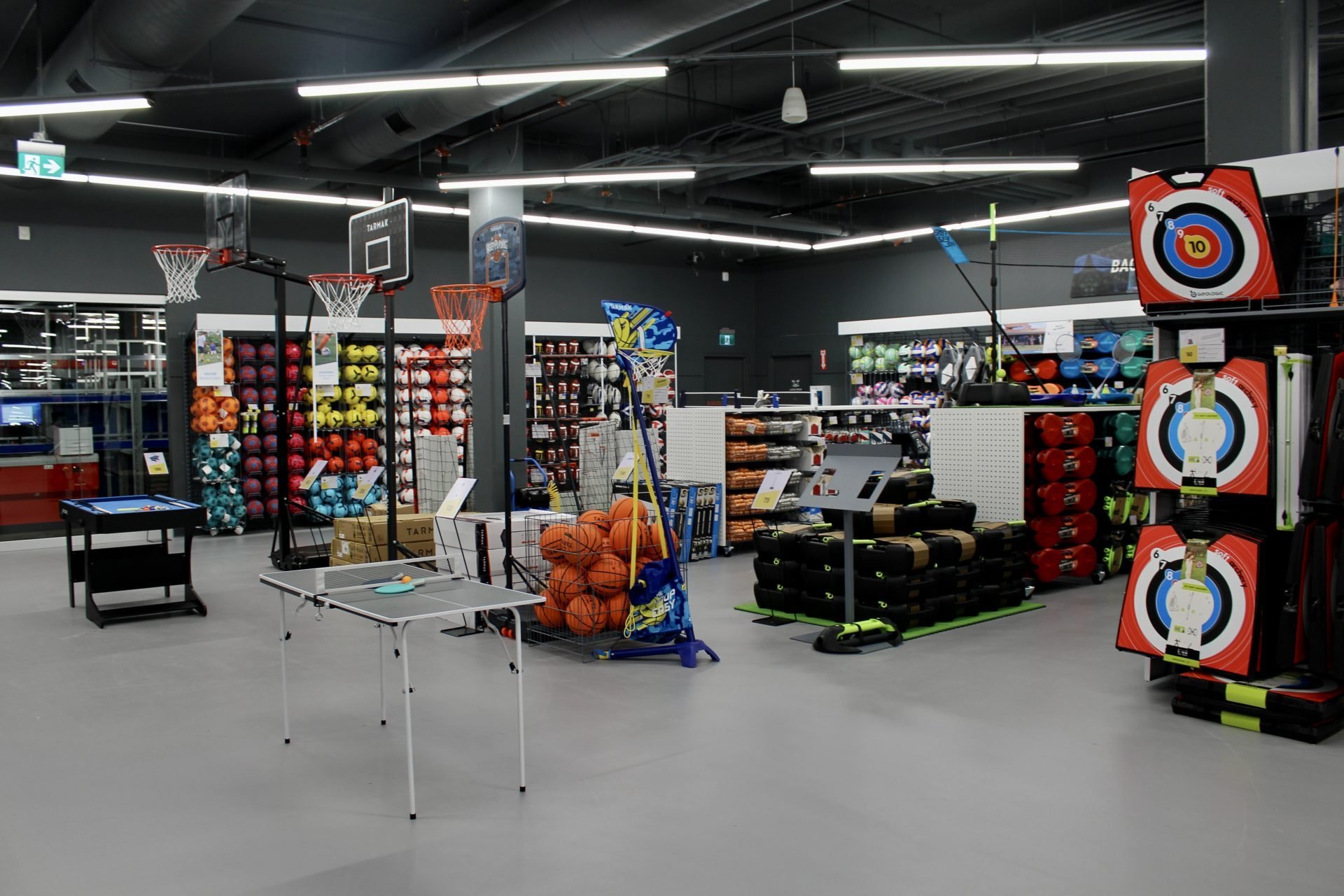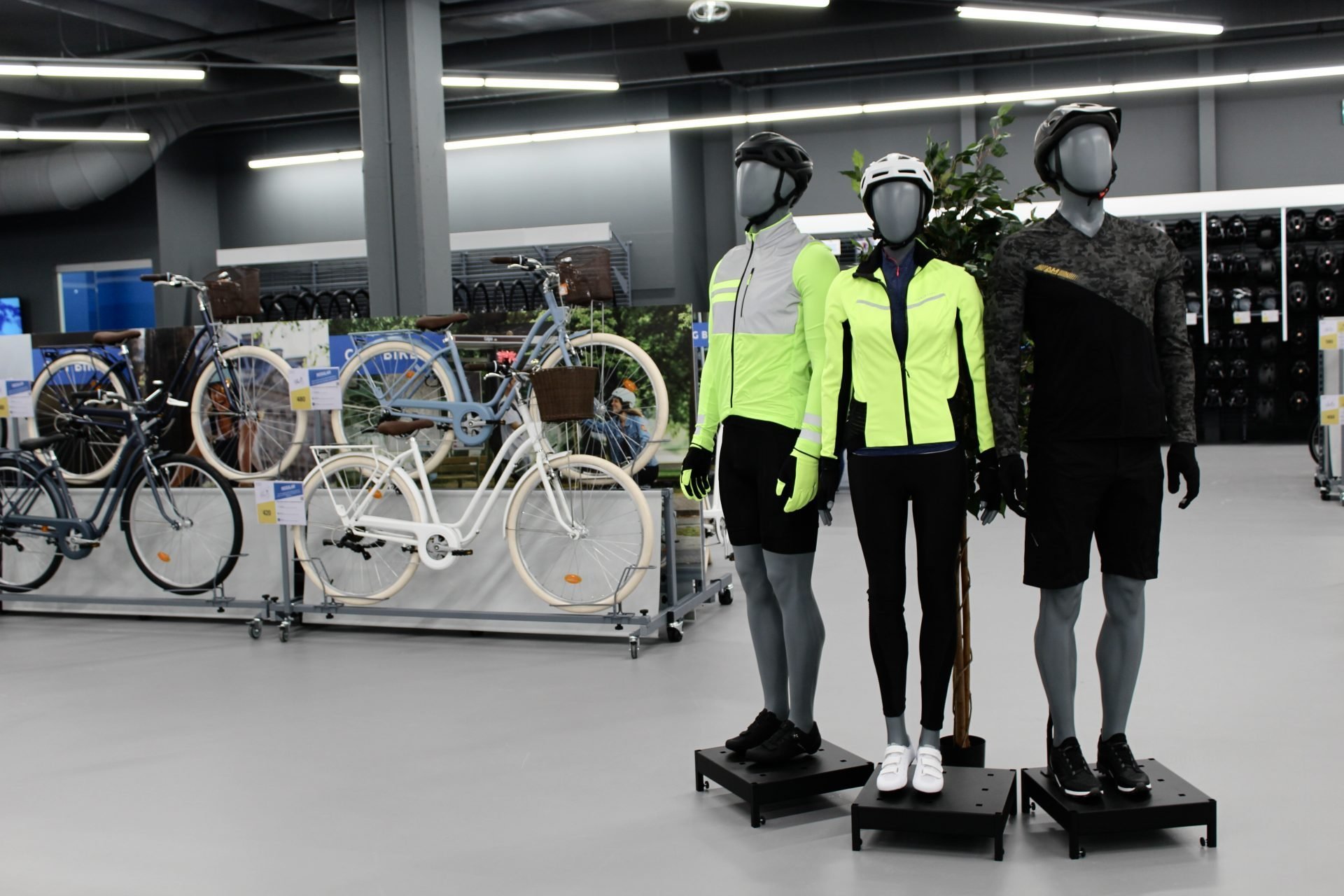Mega retail store opens in Canada with automated robotic fulfillment
With the opening of its latest store in Canada, sporting goods retailer Decathlon Canada may be setting the trend for how future warehouse and fulfillment space will look for other retailers.
“Customers will be able to watch the 27 robots in action as they service e-commerce orders for Western Canada and fulfill in-store requests.”
Decathlon, which was launched in France in 1976, is opening a 63,000 square feet retail space at Southcentre mall in Calgary, including a 7,000 square foot automated warehouse manned mainly with robots.
Customers will be able to watch the 27 robots in action as they service e-commerce orders for Western Canada and fulfill in-store requests.
@immrfabulous Your first look inside Decathlon in Calgary #calgary #newstore #decathlon #robots #yyc #technology #innovation #sports ♬ Energetic, Upbeat, Sports - Acoustic guitar(895039) - Kobat
Jaylone Lee, chief marketing and communications officer of Decathlon Canada, said the automation represents the backbone of a new store concept involving a technology-assisted customer journey within the bricks-and-mortar location itself.
It will also allow the store to serve as the distribution centre to fulfill online orders for Western Canada.
She said the automated warehouse will allow the store to house one-third less inventory on the selling floor versus a traditional store layout – but have 10 times more stock on site. It also frees up retail floor space for more displays and showrooming of select categories of products.
Automation extends to in-store experience
Items requested by customers are available within minutes from the adjacent warehouse area, and available at a designated pickup location within the store. The automation means staff will spend less time on inventory management and stock-related tasks.
“This is novel even for Decathlon,” said Lee. “The automation allows us to really have a density of inventory in that back door. So we can hold 10 times more inventory than a traditional Decathlon store (in the) back store and it’s automated, so there are only six employees who are manning the robots.”
The retailer’s e-commerce orders are currently shipped out of its distribution centre in Montreal. To shorten the lead times for orders in Western Canada, Lee said, those orders will be fulfilled through the automated warehouse at Southcentre.
“It’s a first run for us,” Lee said. “Part of the Decathlon culture is that we like to be really agile. So if this concept works out, for sure it could get rolled out elsewhere.”
The store will include experiential test zones, after sales service workshops — such as bike tuneups and ski fitting and waxing — as well as programming for kids and adults, all run by local coaches and organizations.
"Robots will drive on top of the grid and basically bring products from storage locations to an operator," he said.
"This system's pretty unique. We have about 5,000 bins and it's storing, I think, about 11,000 SKUs [stock-keeping units] for Decathlon."
The store will serve as the distribution centre for the fulfilment of Decathlon's online orders in Western Canada.
"From the wide range of sports we offer at affordable and fair prices, to in-store activities, to service workshops, to second-hand and eco-designed products, we aim to be a trusted partner for people in Calgary looking for solutions to getting and staying active," said store leader Craig Binch in a release.
The company says the store will have 7,000 products for over 65 sports, from hiking, cycling, winter sports, aquatics and running to horseback riding, fishing, dance and archery.
The store also has a gymnasium, café, co-working space and workshop area for services like bike tuneups, ski fitting and waxing and skate sharpening.
The opening of Decathlon brings Southcentre Mall to 90 per cent occupancy, said general manager Jason Bos.
"We hope Calgarians will enjoy getting to know Decathlon, not only as a sporting goods retailer, but also as a leader in innovation, technology and sustainability," he said in a release.
We are one in Calgary 💙🌎
— Decathlon United Media (@DecathlonMedia) November 8, 2021
We are now in western Canada! The beginning of a great adventure 🏒 as we make sport more accessible to Canucks! 🍁#DecathlonCanada #DecathlonUnited #Calgary #SportsFroAll #decathlon pic.twitter.com/mxxxnknS0u
Decathlon hybrid might be World first
Jason Bos, general manager of Southcentre Mall, which is part of the Oxford Properties Group, said the new Decathlon store marries the concept of fulfillment and an in-store experience.
“It’s something a lot of landlords have been talking about and we’re happy to be one of the first – if not the first. I can’t think of another retailer or landlord that’s been able to bring something like this to fruition in terms of a full-scale distribution centre merged with a unique retail store,” Bos said.
“This is the way forward. Regional shopping centres, super regional shopping centres, have to find new and creative ways to use space. People still want to go out and try things on and have that easier experience. So from a retailer’s standpoint, why pay for that retail space as well as warehouse space if you can merge the two together?
“To us, this is really the best of both worlds and bringing both together. It’s something that as a landlord we’ve been on the lookout for a long time. We see this as the future. We see this as the tip of the iceberg.”
Pandemic creates new problems
However, during the pandemic there have been significant staff shortages, an urgent need to scale online orders efficiently and profitably, and to provide stock accuracy which have all been key to the customer experience.
There are an increasing number of providers entering into the Canadian market, most notably Voila with Ocado; however, this is more about covering a large market (in this case, Montreal and Quebec) from one ‘central’ location with a full end-to-end solution for inducting, storage, selection, routing and delivery. For fast-moving and expanding chains, they need to look for something much more local, possibly portable and design this into the store perimeter right from the get-go.
“If retailers get the deployment of micro-fulfillment centres (MFC) right, they can offer a great experience to the customer, not be so reliant on having staff to perform the selection, and they can add extra stock lines into their proposition and effect a quick response to online orders, being close to the porch. This is one trend for mid-sized formats.”
Other roles for micro-fulfillment centres
Another solution for small format stores, or chains seeking greater penetration into neighbourhoods with smaller formats, will be an MFC that can support multiple stores in a wider range of logistics operations. These functions could include curbside, home delivery, daily store restocking and repositioning of inventory to maximize sales.
Bruce Winder, author of RETAIL Before, During & After COVID-19 and president of Bruce Winder Retail, said the use of stores as fulfillment centres has grown during the pandemic and will continue to grow with e-commerce, while urban warehouse space has become difficult to obtain.
“This store allows Decathlon to supply the Western market efficiently while creating a focal retail footprint in one of Canada’s largest cities. With the decline of department stores such as Sears, large spaces that have sat empty can now be used to offer regional fulfilment which makes good sense for both mall and retailer,” Winder said.
Michael Kehoe, an Alberta-based retail specialist and broker/owner of Fairfield Commercial Real Estate in Calgary, said the warehouse and fulfillment component of the expansive Southcentre location is a logical feature of committed omni-channel retailers trading across multiple platforms.
“It’s a retailing trend that is gaining momentum, amplifying the importance of physical stores that are the cornerstone of any successful retail strategy,” Kehoe said.
Decathlon housed in former Sears location
The Calgary Decathlon store is helping to fill the space left behind from the departure of retail giant Sears a few years ago. Decathlon is taking up the majority of the space on the second floor of the former Sears box. There is one small area left on that floor for a future restaurant.
The total Sears space was about 230,000 square feet over three floors. To date, about 165,000 square feet has been leased. The entire ground floor is leased with PetSmart, Dollarama and Winners. The next step is to lease out the third-floor space.
The Retail Council of Canada says the arrival of a company like Decathlon shows optimism for a sustainable retail market.
“Calgary is now and always has been an important market in Canada, both for domestic and international expansion, for sure. It’s one of the top markets in Canada,” said senior retail advisor Michael LeBlanc.
“There’s a lot of enthusiasm about Calgary. It’s a young market, from a demographics perspective. And, you know, all markets have ebbs and flows and sometimes that’s a pretty good time to go into the market — when the market is ebbing more than flowing — and, you know, anchor yourself in a nice place, get a nice long-term deal as a retailer with a great rate.”
LeBlanc also said positioning themselves as a distribution centre in western Canada is a good thing for Decathlon and Calgary.
“So they built a store that’s going to be just jam-packed, full of product, probably some extra product and use that, interestingly, as a ship to western Canadian customers distribution center, which is interesting, some retailers ship from store, that’s not uncommon, but it’s a particular investment with some technology and some automation.”
The president and CEO of the Calgary Chamber of Commerce, Deborah Yedlin says there’s a retail vibrancy in the city that companies like Decathlon are interested in capitalizing on.
“Despite the challenges, we still have a strong business climate and we’ve seen other things happen in the last while in terms of companies coming here and setting up shop, and also seeing our local businesses expand,” she said.
“We still have the highest per capita incomes in the country, so they’re obviously interested in that. They’re looking at sales per square foot in terms of the various malls in Calgary. Our recreational activities are very actively-based and so they’re seeing this as a market big enough to support another entrant and they’re not a small entrant, they have purchasing power and it’s gonna be really interesting to see how they leverage that brand in the city.”
As of August, Decathlon had 1,709 stores in 60 countries. The Calgary location is the company’s 10th in Canada. Its first store in Canada opened in Brossard, Que., in 2018.





